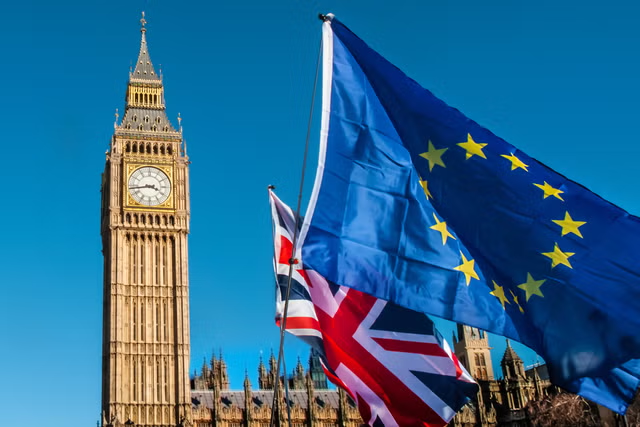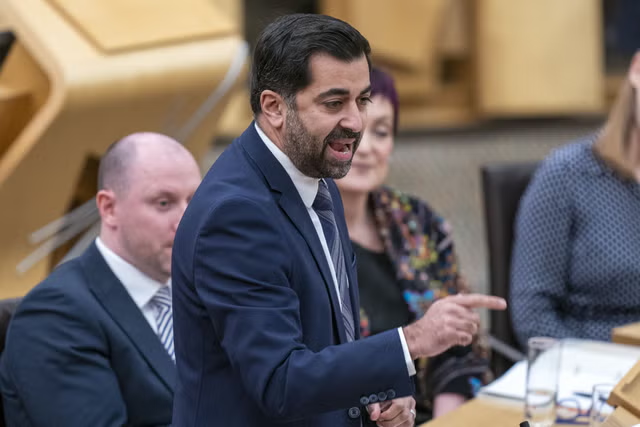Labour will pledge to renationalise the railways if elected, in what the party will call the “biggest overhaul to our railways in a generation.”
A Labour government would expect to transfer rail networks to public ownership within its first term by folding existing private passenger rail contracts into a new body as they expire, shadow transport secretary Louise Haigh will say at a launch event on Thursday.
The plan will nationalise the network “without the taxpayer paying a penny in compensation costs”, the party will say.
The Government’s own proposals for rail reform, published in a draft Bill in February, include the creation of a new public sector body named Great British Railways (GBR) to hold responsibility for rail infrastructure and awarding contracts to operate trains.
But a Labour government would create a “unified, publicly owned, accountable and arm’s length” version of GBR led by rail experts rather than Whitehall, Ms Haigh will say.
Labour also plans to establish a watchdog, the Passenger Standards Authority, to hold GBR to account.

Ms Haigh will say: “With Labour’s bold reforms, a publicly owned railway will be single-mindedly focused on delivering for passengers and will be held to account on delivering reliable, safe, efficient, accessible, affordable and quality services.
“Labour’s detailed plans will get our railways back on track; driving up standards for passengers, bringing down costs for taxpayers, driving growth and getting Britain moving.”
The Government estimated in its 2021 reform plan that it could save £1.5 billion annually after five years by ending inefficiency and fragmentation.
Labour says, citing its own analysis, that transitioning to public ownership could save money by cutting out franchise bidding costs, reducing the duplication of resources and lessening friction between operators.
The party also plans to bring in automatic delay and cancellation refunds, make digital season tickets available on all networks, and make timetables, tickets and fares more integrated. It also proposes moving mobile service on trains towards 5G and improving the integration of rail travel with bus and cycle hire services.
The Government’s reform plans were based on recommendations from a review carried out by former British Airways chief executive Keith Williams.

Mr Williams said of Labour’s plans: “I welcome Labour’s intention, if they are elected, to take forward the substance of my recommendations to deliver a better railway for passengers and freight by creating a rail body with an integrated profit and loss account, at arm’s length from government.”
Mick Whelan, general secretary of Aslef, said: “We have seen more positivity in this stunning Labour Party vision for rail than anything at any time from the Tories during their failed privatisation and subsequent incoherent rail reform programme.
“The Labour commitment delivers for the economy, for the taxpayer, for passengers, and for staff.”
Mick Lynch, general secretary of the Rail, Maritime and Transport union said: “Labour’s commitment to bring the train operating companies into a new unified and publicly owned rail network is in the best interests of railway workers, passengers and the taxpayer.”
He added: “This announcement however should be a first step to completely integrating all of our railway into public ownership.”
Andy Bagnall, chief executive at Rail Partners, an industry group of train operators and freight groups, said: “Train companies agree that change is needed for the railways, but nationalisation is a political rather than a practical solution which will increase costs over time.”
Rail minister Huw Merriman criticised Labour’s plans, claiming only the Tories had “a plan to continue investing record amounts in our rail network”.
He added: “Labour have confirmed they would push forward with their pointless, unfunded rail nationalisation that will do nothing to improve train reliability or affordability for passengers.
“Just like their unfunded £28 billion a year decarbonisation promise, they don’t have a plan to pay for the bill attached to their rail nationalisation. Without a plan to pay for this, it means one thing: taxes will rise on hard working people.”
Labour’s plans would still leave a role for the private sector on Britain’s railways.
Open access operators, like Hull Trains and Lumo, will be able to continue to compete to improve the offer to passengers, the party said.
Labour also hopes to “crowd in” private investment to stimulate innovation in the rail sector.
SNP transport spokesman Gavin Newlands said: “This is just the latest in a long list of U-turns from Sir Keir Starmer, this time on his commitment to nationalise the railways.
“Instead of putting the national railway service in the hands of the people, as the SNP Scottish Government have done, Sir Keir Starmer’s Labour Party will instead increase private investment into another public service, just like their plans for the NHS.”
Disclaimer: The copyright of this article belongs to the original author. Reposting this article is solely for the purpose of information dissemination and does not constitute any investment advice. If there is any infringement, please contact us immediately. We will make corrections or deletions as necessary. Thank you.



